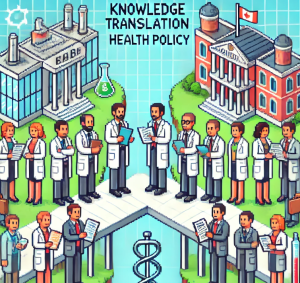
Rural Patients Report Better Hospital Experiences
When you think about healthcare in rural America, what comes to mind? For many, the first thoughts might be about challenges: long distances to hospitals, fewer healthcare facilities, and a shortage of specialists. But what if I told you that rural patients often report better experiences in hospitals than their urban counterparts? That’s the intriguing finding from a recent study published in PLOS ONE that challenges some common assumptions about rural healthcare.
The Power of Patient Experience
I used to poo-poo measures like satisfaction. Part of this was drilled into me by a very grumpy stats professor back at USC. However, I’ve done a compete 180 on this in the last seven or do years.
Patient experience is more than just a buzzword; it’s a critical aspect of healthcare that can influence everything from treatment adherence to overall health outcomes. When patients feel heard, respected, and well cared for, they are more likely to follow their doctor’s advice and stay engaged in their health journey. On the flip side, a poor experience can lead to dissatisfaction, mistrust, and even worse health outcomes.
This study sought to explore how the location of a patient’s residence—whether rural, micropolitan (small urban areas), or metropolitan (large urban areas)—affects their hospital experience. The researchers analyzed data from over 56,000 patients who were hospitalized across 17 different hospitals in the Midwest, using the Hospital Consumer Assessment of Healthcare Providers and Systems (HCAHPS) survey, a standard tool in the U.S. for gauging patient experience.
Surprising Findings from the Heartland
Contrary to what you might expect, the study found that patients from rural areas reported similar or even slightly better hospital experiences than those from urban and micropolitan areas. This was true across a range of measures, including overall hospital ratings and whether they would recommend the hospital to others.
One of the most significant findings was that rural patients were more likely to give favorable ratings for overall hospital experience than those living in metropolitan or micropolitan areas. The odds of a rural patient giving a top-box rating (the highest possible score) were about 10% higher than for patients from metropolitan areas.
So, what might be driving these differences? Let’s dive into some potential reasons.
Why Rural Patients Might Be Happier
- Lower Expectations or Greater Appreciation?
- One possibility is that rural patients may have lower expectations of healthcare facilities. With fewer hospitals and longer travel times, a hospital stay might feel like a bigger event, leading to a greater appreciation for the care received.
- On the other hand, it could be that the quieter, less hectic environment of rural hospitals leads to more personalized care and attention, contributing to a more positive experience.
- Quieter Environments and Cleanliness
- The study found that rural patients were more likely to report favorable experiences regarding the cleanliness and quietness of their hospital environment. In smaller, less crowded hospitals, maintaining a clean and peaceful environment may be easier, contributing to higher satisfaction levels.
- Familiar Faces and Personal Connections
- In rural areas, healthcare providers might know their patients personally, having treated them or their family members over the years. These personal connections can create a more trusting and comfortable environment, enhancing the patient’s overall experience.
The Role of Communication
Interestingly, the study also highlighted that the communication between patients and hospital staff—particularly about medications and care transitions—was a key driver of overall hospital ratings. This was consistent across all areas, whether rural or urban.
This finding underscores the importance of clear and effective communication in healthcare. Whether a patient is being discharged or given new medication, understanding the next steps is crucial for their safety and satisfaction. It also highlights an area for improvement in hospitals of all sizes and locations: ensuring that every patient leaves with a clear understanding of their care.
What This Means for Healthcare Providers
For healthcare providers, these findings offer valuable insights into how to improve patient experiences across different settings. While rural hospitals may already be doing well in many areas, there’s always room for improvement, especially in aspects like communication and care transitions. For urban hospitals, these results suggest that looking to the practices of their rural counterparts might offer some valuable lessons.
The study also raises important questions about how we measure and understand patient experience. It’s not just about having the latest technology or the most extensive facilities; sometimes, a more personal touch and a quieter, cleaner environment can make all the difference.
Join the Conversation
What do you think contributes to a positive hospital experience? Have you noticed differences in healthcare quality between rural and urban areas? Share your thoughts and experiences in the comments below or join the conversation on social media!
Rethinking Rural Healthcare
This study turns the spotlight on rural hospitals and challenges the notion that bigger is always better when it comes to healthcare. While rural patients may face many challenges, their overall hospital experience seems to be one area where they come out on top.
As we continue to strive for better healthcare outcomes across the board, it’s worth considering what makes these rural hospitals stand out and how we can apply those lessons to improve care for everyone, no matter where they live.
Be Part of the Change – Get Weekly Updates!
Stay informed and connected. Subscribe for free and share this blog to make a difference in public health with others. If you liked this blog, please share it! Your referrals help This Week in Public Health reach new readers.



